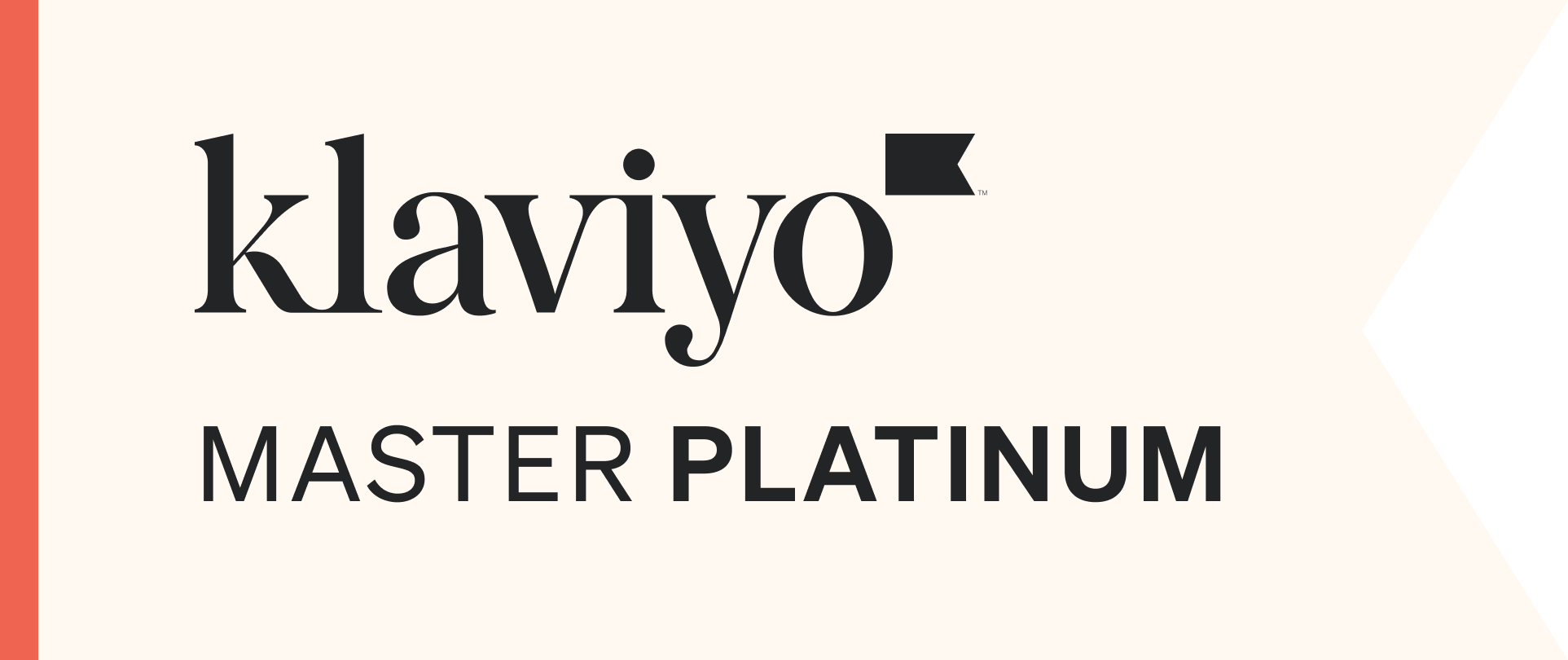By Sean Markey on 31 Jul 2015

If there is one line that the big-wigs (and also, the small wigs...) at Google repeat time and time again, it's "Content is king". "Content marketers, bloggers and online business people always wonder what is the secret to getting their blogs/articles/landing pages to rank highly on Google search returns? The answer, as far as Google is concerned, is a very simple one; Just make great content that your target audience will enjoy and everything will fall into place.
Of course, the very concept of 'great content' is a fairly arbitrary one; There is no magic 'one size fits all' approach to creating great content that any audience will find valuable and/or enjoyable and there are countless factors that could potentially lead to a piece of content being deemed as 'great' in the eyes of search engines. In an age of ever changing algorithms with names like 'Panda' and 'Phantom' deciding what content you, the web searcher, should and should not see, it is more important (and difficult) than ever to ensure that your sites' content is up to scratch.
Devising content that the Gods of Google deem worthy of their alter really depends on what your end goal is (and is worthy of a great many articles dealing with those specifics), but if there is one universal content constant on the world wide web, it is that there are certain things which will actively enrage the Google Gods and bring their furious wrath down upon your website. These deadly sins of digital marketing (remember, there is a fine line between being a content marketer and an outright shill) are applicable to virtually every website and industry imaginable and webmasters should do their utmost not to commit them.
The following is by no means an exhaustive compilation (if you can think of anything worse, let us know on Twitter), but here is our list of 10 things which Google actively despises seeing on websites and seems to enjoy punishing webmasters for (if we were into clickbait, we'd say something along the lines of, "Number 7 Blew My Mind" - unintentionally implying that the rest of the article isn't all that interesting - stupid clickbait):
1. Top-Heavy Adverts
 One of Google's less talked about algorithms is the Google Page Layout Algorithm (in fairness, it's not as fancy a name as Hummingbird or Penguin) which is sometimes called the Google Top-Heavy Update (honestly, a lot more people would write about it if it were named Google Triceratops). Top-Heavy's job is to punish websites which stick too many ads 'above-the-fold', essentially making it hard for visitors to see what the web page is really about.
One of Google's less talked about algorithms is the Google Page Layout Algorithm (in fairness, it's not as fancy a name as Hummingbird or Penguin) which is sometimes called the Google Top-Heavy Update (honestly, a lot more people would write about it if it were named Google Triceratops). Top-Heavy's job is to punish websites which stick too many ads 'above-the-fold', essentially making it hard for visitors to see what the web page is really about.
"From the horse's mouth:
We’ve heard complaints from users that if they click on a result and it’s difficult to find the actual content, they aren’t happy with the experience. Rather than scrolling down the page past a slew of ads, users want to see content right away. So sites that don’t have much content “above-the-fold” can be affected by this change. If you click on a website and the part of the website you see first either doesn’t have a lot of visible content above-the-fold or dedicates a large fraction of the site’s initial screen real estate to ads, that’s not a very good user experience. Such sites may not rank as highly going forward." - Google
While Google have only hinted that above-the-fold adverts are a negative ranking factor in terms of Search Engine Optimisation, it should be obvious to most webmasters that such excessive adverts will have indirect (but no less impactful) negative SEO implications. If a visitor arrives on a website looking for say, a football match report, but are immediately greeted with lots of ads that get in the way of reading the actual content instead, they are more likely to click out of the website without reading, reducing the average time spent on page.
Ads also take extra resources to process, resulting in slower loading times. This will increase the page's overall bounce rate, with readers less likely to stick around looking at ads while they wait for their content to load. While there can be no denying that generating advertising revenue is a useful business practice, webmasters must be sensible about it and not let the pursuit of a quick and easy short-term profit get in the way of maintaining a long-term readership/customer-base.
2. Moving Advertisements
High speed broadband is a wonderful thing. It allows us to access the information super-highway at speeds once thought to be little more than pipe dreams and sci-fi fantasy. However, this great new way of accessing the internet comes at a price; the ability to process the internet faster also means we have the ability to process more complex forms of on-page advertisements too.
This has not gone unnoticed by nefarious online marketers who see faster computers and internet connections as a meas of creating even more devilish means of trying to sell things to people as they go about their day-to-day internet business. It is not uncommon to be greeted with all manner of moving adverts when you arrive on a landing page these days. From animated gifs to adverts quite literally chasing you via the sidebar as you scroll toward the end of the page, modern on-page ads seem to be getting more obnoxious by the day. Monstrous...
Monstrous...
Conventional marketing wisdom would pontify that moving ads are advantageous as they draw the eye toward them. This is certainly true. However, when people are reading online content they are there to do just that; read the actual content! There's a reason why books don't have flashing lights attached to their peripheries; they'd break the reader's concentration and ruin the experience, making them much less likely to pick up the book and read it again. Websites are no different to books in this regard.
If you have arrived on a site to read something that interests you, you're not going to want to be distracted. If a web page has all manner of moving parts which distract from actually taking in the content, visitors are unlikely to stick around for very long, reducing the page's time spent on site ratio and leading to poorer search rankings and conversions for the site in question.
If you do wish to use moving adverts, make sure that they stop after a couple of seconds. That's plenty of time to make a point. Anything after that is needlessly distracting but not in a good way. A moving on-page advert is like someone talking in the cinema - don't be that guy.
3. Autoplay Videos
Youtube, Facebook and Twitter are all embracing autoplay video, but why? It really is one of those features that no one really wants, so why do they force it on us? In a word, 'money'. Social media platforms charge advertisers for ads after they have been let run for a predetermined amount of time, so it's in their best interest to have videos run as often as possible - user experience be damned! (Half their users are borderline addicts anyway so are unlikely to quit because of a bit of autoplay).
Outside of the realm of social media platforms though, website visitors are far more hostile to autoplay videos. Generally speaking, web users like to land on a page, have a look about and then watch the associated video (if they feel like it). Autoplaying the video only leads to a rushed and manic user experience which may make users reluctant to revisit the site.
If, for some reason, you absolutely must have autoplay videos on your site (pro tip: you really shouldn't as Google look very likely to actively punish autoplay in terms of SEO in the not too distant future under their recently implemented 'Phantom' initiative), make sure they have the volume muted as a default. Precious little makes people click out of a website quicker than unexpected noise (think of people who are in work and aren't supposed to be browsing), reducing the time spent on page ratio and contributing to a bad bounce rate.
If moving adverts are like someone talking in the cinema, autoplay videos are like somebody listening to jungle music in the middle of the night whilst drilling holes in the wall.
Aren't you glad that video didn't autoplay when you landed on this page?
4. Advertorials
Good content marketing is generally considered to be that which helps create a strong bond between a brand and its customers (potential and existing) by bringing them interesting and informative content which is useful to them beyond merely enticing them to buy things. Bad content marketing is when a sales pitch appears on a website or blog (usually very badly) disguised as a piece of news or an article, like when a film director writes a rave review of his own awful movie on IMDB. Web users aren't stupid (citation needed), and can usually see right through an advertorial. Not only does this mean that they are unlikely to convert via (or even finish reading) an advertorial, it also means that once they have gotten wise to the presence of advertorials on a website their trust in said site diminishes greatly, so they are much less likely to come back and visit again. Not only do bad advertorials (referred to on this blog as 'badvertorials') scare away web users, they can also incur the wrath of the mighty Google.
Bad content marketing is when a sales pitch appears on a website or blog (usually very badly) disguised as a piece of news or an article, like when a film director writes a rave review of his own awful movie on IMDB. Web users aren't stupid (citation needed), and can usually see right through an advertorial. Not only does this mean that they are unlikely to convert via (or even finish reading) an advertorial, it also means that once they have gotten wise to the presence of advertorials on a website their trust in said site diminishes greatly, so they are much less likely to come back and visit again. Not only do bad advertorials (referred to on this blog as 'badvertorials') scare away web users, they can also incur the wrath of the mighty Google.
Since no self-respecting website in its right mind would host an advertorial without being paid to do so, any links found within are almost certainly going to be paid for links. As we all know, paying for links is not something Google tend to approve of and can bring about some pretty harsh (but fair as some would argue) Penguin shaped penalties, which knock your site down in the SERPs, resulting in a loss of organic traffic. You wouldn't let someone plant a ticking time-bomb in your belly in exchange for money, so why would you allow someone to do just that with your website?
5. Recommended 'Articles'
 (Click to read about Dundalk man's shocking muscle gain secret)
(Click to read about Dundalk man's shocking muscle gain secret)
You might think that simply not hosting advertorial content on your website is enough to avoid receiving an advertorial related penalty from Google. However, it's not just sites that actively host advertorials that Google likes to punish, but those who actively link to them, hidden under the guise of 'Recommended Articles'. These 'articles' are usually little more than (very) thinly-veiled attempts at shilling products of dubious nature (diet pills and substances which will enlarge certain parts of the male anatomy seem to be all the rage when it comes to these badvertorials).
As of May 2015, the Google Penguin received a new partner in terms of rooting out dodgy link practices in the form of the mysterious Quality Update which webmasters have dubbed 'The Phantom'.
While the Phantom Update deals with most of the things discussed in this article, one of the things it seems to be particularly interested in (and by 'interested in' we mean 'interested in destroying') is underhanded use of 'recommended articles' which take up too much on-site real estate. Google Phantom views these in the same way that other Google Quality updates interprate excessive sidebar adverts.
While such 'recommended articles' are designed to blend in with their surroundings and receive clicks from unsuspecting web users who are looking for news articles to read, the Phantom is not so easily fooled; it harshly judges (and punishes) websites which employ this tactic for profit and sees that they quickly fall down the SERPs.
6. Links to Bad Sources
 Linked to the 'Recommended Articles' phenomenon, the Google algorithms and crawlers are getting extremely intelligent when it comes to assessing not only the links that are coming into your website, but also the sites that your website is linking to.
Linked to the 'Recommended Articles' phenomenon, the Google algorithms and crawlers are getting extremely intelligent when it comes to assessing not only the links that are coming into your website, but also the sites that your website is linking to.
When you create a followed link to a website you are essentially giving that site a seal of approval. If you are throwing out lots of followed links willy-nilly to web pages of poor quality Google will often interprate this as a sign that your site is poor when it comes to judging quality content and view your site with less trust as a result, which can diminish your site's authority and lead to lower rankings in terms of SERPs.
While linking to other websites (so long as they are relevant to the topic at hand) is a good way to enhance your readers' on-site experience as well as establishing a natural outlink profile, discretion is advised. In order to make sure that Google doesn't view your site as being careless with its 'link juice', you should take the time to add a 'no follow' tag to any links that lead to sources which you think may be somewhat dubious. It's a bit like telling Google, "This is what I heard but don't quote me on it!"
7. Clickbait
If you surf the web reasonably often, whether through search engines via social media, chances are you frequently come across links to articles with vague titles (not to mention preview images) which don't really tell you what the article is specifically about. These are what is known as 'clickbait'; titles which have been devised to pique the curiosity of the reader and get them to click on the link, rarely with any sense of quality user experience in mind. Articles with titles that contain phrases like "You won't believe what happens next", "Shocking Video - Must Watch!" or "Man United to sign this superstar striker?" are usually clickbait. By their very nature, clickbait articles are vague and do not tell prospective visitors what it is that they are getting themselves into. As such, people who visit these pages are usually left disappointed when it turns out that the article really wasn't all that amazing or interesting. As a result, people who visit clickbait pages tend not to stick around long.
Articles with titles that contain phrases like "You won't believe what happens next", "Shocking Video - Must Watch!" or "Man United to sign this superstar striker?" are usually clickbait. By their very nature, clickbait articles are vague and do not tell prospective visitors what it is that they are getting themselves into. As such, people who visit these pages are usually left disappointed when it turns out that the article really wasn't all that amazing or interesting. As a result, people who visit clickbait pages tend not to stick around long.
Fortunately, the likes of Google have realised that in most cases the amount of time spent on a page by users is a lot more valuable than the total number of clicks received and clickbaity articles have suffered greatly in terms of their ability to rank well in search return pages as a result. It's not just Google who are actively punishing clickbaiters these days. In June, Facebook announced that they too would be giving less news feed space to clickbait links. With all of that in mind, it appears that the days of clickbait are numbered as this form of garnering website clicks becomes increasingly obsolete. A content marketer published a clickbait article. You won't believe what happens next (no one clicked it).
8. Thin Content
Often linked to click-bait, thin content has become a true pox on the internet as websites compete obsessively to get as many posts/articles published in as small a frame of time as possible in order to try and get as many clicks as they can - a form of 'churnalism'. A depressing percentage of the web's pages contain little more than a couple of sentences and a couple of images, a solitary video or a handful of embedded tweets (in other words, content which has been skimmed from elsewhere on the web) which tend to be recycled from other sources. It's the epitome of laziness - and these pages are meant to be considered news!  These pages of thin content rarely amount to anything more than a 'quick fix' for the reader (if they even achieve that) and serve no real long-standing value. As such, their average 'time spent on page' ratios tend to be quite low as readers quickly grow bored and click away to a site more worthy of their time and attention.
These pages of thin content rarely amount to anything more than a 'quick fix' for the reader (if they even achieve that) and serve no real long-standing value. As such, their average 'time spent on page' ratios tend to be quite low as readers quickly grow bored and click away to a site more worthy of their time and attention.
The Google Phantom and Panda Algorithm updates, the latter which began rolling out this month, appear to have been actively created to combat such web pages. It's slow ongoing roll out means that it will be steadily ensuring that articles of better quality consistently beat their lazier churnalistic counterparts when it comes to SERP rankings. (And yes, I am aware of the irony that the section on thin content is the shortest of the bunch)
9. Poorly Written Content
Gone are the days when a churnalist could write just about any old inane gibberish on their page in order to hit the 'magic 300 word search engine pleasing quota' in order to justify the existence of another low quality page designed to pull in clicks without so much as sparing a thought for the poor schmucks who landed on the page and couldn't figure out exactly what the heck it was that they just read, never mind why it was plopped next to Kim Kardashian tweet while a cat loudly played a ukulele in an autoplay video that was hidden behind a bunch of popup ads.  Fortunately, Google has a algorithm for that (fingers crossed that phrase doesn't become the new "There'a an app for that!"). The Google Hummingbird algorithm is very complex in that it doesn't merely scan for 'interesting' links and keyword density. It is quite capable of judging the intent of a page's copy. Not only does this make Google Hummingbird capable of matching search results to question based search queries, it is also fairly good at telling when a page is rambling nonsensically.
Fortunately, Google has a algorithm for that (fingers crossed that phrase doesn't become the new "There'a an app for that!"). The Google Hummingbird algorithm is very complex in that it doesn't merely scan for 'interesting' links and keyword density. It is quite capable of judging the intent of a page's copy. Not only does this make Google Hummingbird capable of matching search results to question based search queries, it is also fairly good at telling when a page is rambling nonsensically.
Nowadays, Google is no longer just judging pages on how often they mention the keyphrase, but how they are mentioning it. If your pages are padded out with text/copy which is mostly unrelated to the topic at hand they will be unlikely to rank well in terms of SERPs. By contrast, a small but more concise page which makes its point more succinctly without stuffing itself with unnecessary filler has a better chance of ranking for the query.
10. Lies!
Earlier this year, Google announced that they are working on a brand new ranking system based on 'Knowledge-Based Truth' (generally referred to as the 'Truth Algorithm' by SEOs and webmasters). The 'Truth Algorithm' is being developed as a means of 'cleaning up' query based SERPs which contain results which are misleading, factually dubious or downright nonsense. The idea behind this is to reward websites which contain verified facts with good search engine visibility while punishing those which contain rumours, faux news and pseudoscience.
The idea of a fact based search algorithm is being welcomed by many, particularly those involved in the scientific community, who often find themselves struggling to get their information out to the public while charlatans and snake oil merchants dominate SERPs with fear-mongering headlines and poorly (often dishonestly) interpreted research.  Of course, not everybody is pleased with the idea of Google deciding what is and is not considered 'the truth'. Perhaps unsurprisingly, conspiracy theorists are one such group, citing this as evidence that the big G is involved in a massive New World Order conspiracy and is actively trying to silence dissenters. The conspiracy theorists are not alone in their complaints, joined by such good company as climate change deniers, young Earth Creationists and Holocaust deniers.
Of course, not everybody is pleased with the idea of Google deciding what is and is not considered 'the truth'. Perhaps unsurprisingly, conspiracy theorists are one such group, citing this as evidence that the big G is involved in a massive New World Order conspiracy and is actively trying to silence dissenters. The conspiracy theorists are not alone in their complaints, joined by such good company as climate change deniers, young Earth Creationists and Holocaust deniers.
It is unclear exactly as to when 'Knowledge-Based Truth' will come in to play or just how big an impact it will have on SERPs. At the moment it doesn't appear as if the 'Truth Algorithm' will appear as a large scale 'once off' update with a set date, but rather a slow roll out over time. With that in mind, content marketers, journalists, bloggers etc. should be constantly and consistently fact-checking their sources (because heaven knows a lot of them don't bother doing it these days!).
If the 'Truth Algorithm' were to work, it sure would save everybody from encountering terrible content in their SERPs.
Should we be worried?
I know what you're thinking, "But I've seen lots of websites do these things but they still get good SERPs, traffic etc." and chances are that you're completely right in that regard. But consider that the various google Algorithm Updates are constantly evolving and changing with the precise intent of catching out people who use these nefarious and dubious methods. In the space of less than three months we've seen the Google Phantom Quality Update roll out, in addition to the ongoing Panda assault on low quality websites (which only started within the past three weeks and will continue to work its magic over the course of the next few months).
It is quite clear that Google really mean business this time and they are only likely to accelerate their efforts as time goes on an the algorithms become even more intelligent. In conclusion, if your website is using anything that has been listed in the preceding article, now is the time to 'get out' and change your ways before it's too late. Because once a google penalty hits home, it can be very difficult to repair the damage.
Is there anything else that really grinds your gears on websites these days? Send us a message on Twitter to vent!
[Cover Image Credit: Free SEO News]








